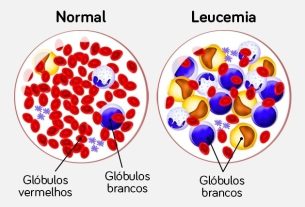Gastroesophageal reflux is the involuntary return of stomach contents to the esophagus, which can cause symptoms such as burning in the chest and/or neck, heartburn, sour taste in the mouth and a lump in the throat.
Most of the time, gastroesophageal reflux is caused by changes in the functioning of the sphincter present between the esophagus and the stomach, being more common in people who are overweight and have a diet rich in fat.
If reflux is suspected, it is recommended to consult a gastroenterologist. Treatment usually involves the use of medications for acidity and measures such as losing weight and avoiding lying down right after eating.
Understand better about reflux with Dr. Antonio Carlos Moraes:
Main symptoms of reflux
The main symptoms of gastroesophageal reflux are:
- Burning rising from the pit of the stomach to the throat;
- Sensation of food returning from the stomach to the mouth.
- Sour taste in the mouth;
- Sensation of lump in the throat;
- Heartburn, nausea and/or vomiting;
- Cough, hoarseness or frequent clearing of the throat;
- Pain or difficulty swallowing food.
The burning sensation rising in the chest and/or food returning from the stomach to the mouth are the most characteristic symptoms of gastroesophageal reflux and tend to appear after meals, especially when the person lies down.
Read too: Top 10 reflux symptoms and what to do
Especially when reflux is constant and untreated, it can result in inflammation of the esophageal wall, known as esophagitis, and increase the risk of esophageal cancer. Understand better what esophagitis is and the symptoms.
Reflux Symptoms in Babies
Reflux is common in babies under 1 year of age and usually does not cause symptoms other than gurgling. However, in some cases it can also cause irritability, developmental delays and difficulty breastfeeding or gaining weight.
Furthermore, in more serious cases, the baby may also develop recurrent ear infections or even pneumonia due to food entering the airways when reflux occurs. Know how to recognize the symptoms of reflux in babies.
Reflux symptoms in pregnancy
The symptoms of reflux during pregnancy are the same as those seen in women who are not pregnant and are more frequent from the end of the first trimester, due to hormonal changes common during pregnancy and the baby’s growth in the uterus.
Read too: Reflux in pregnancy: symptoms, causes and treatment
Online symptom test
To find out the possibility of having gastroesophageal reflux, please select the symptoms you present:
This test is a tool that serves as a means of guidance only. Therefore, it is not intended to provide a diagnosis and does not replace consultation with a gastroenterologist or general practitioner.
How the diagnosis is made
The diagnosis of gastroesophageal reflux is made by a gastroenterologist, general practitioner or, in the case of children, a pediatrician, taking into account the symptoms and, sometimes, the results of tests such as endoscopy or 24-hour pH monitoring.
If you want to make an appointment, find a gastroenterologist closest to you using the tool below:
Taking care of your health has never been easier!
Especially for people over 50 years of age and/or with symptoms such as pain or difficulty swallowing, anemia or weight loss, the doctor may recommend upper digestive endoscopy with the aim of also ruling out more serious problems. Understand how endoscopy is performed.
Possible causes
The main causes of gastroesophageal reflux are:
- Anatomical changes or changes in the functioning of the sphincter that is present between the esophagus and the stomach and whose function is to allow food to enter the stomach and prevent its return;
- Use of medications, such as some antihistamines, antidepressants and calcium channel blockers;
- Hiatus hernia;
- Weakness of the muscles in the region.
Furthermore, some factors can favor the occurrence of reflux, such as obesity, a diet rich in fatty foods, large meals, especially before bed, consumption of alcohol and caffeinated or carbonated drinks and smoking.
Read too: 20 foods that cause heartburn, reflux and burning
What is the treatment for reflux?
Treatment for gastroesophageal reflux is different for adults, pregnant women and children, and can range from measures such as losing weight and avoiding lying down right after meals, to the use of medicines to reduce acidity in the stomach and, in the most serious cases, surgery. . See in more detail how reflux treatment is carried out.
Some of the main treatment options for gastroesophageal reflux are:
1. Remedies for acidity
The most recommended medications for treating reflux are known as proton pump inhibitors, some examples being omeprazole or pantoprazole, which act by reducing the amount of acid in the stomach. See the most used remedies to treat gastroesophageal reflux.
2. Diet changes
In case of reflux, it may be recommended in some cases to eliminate or reduce the consumption of alcoholic beverages, soft drinks, foods rich in fat and coffee, for example. Furthermore, the last meal of the day should be eaten at least 3 hours before bedtime to avoid symptoms.
Read too: Reflux diet: what to eat and what to avoid
3. Surgery for reflux
Surgery for gastroesophageal reflux is indicated mainly in the most serious cases in which other treatments have not resulted in controlling reflux symptoms. This surgery is known as a fundoplication and is normally performed laparoscopically. Check out when reflux surgery is indicated and how it is performed.
Bibliography
- STATPEARLS. Gastroesophageal Reflux Disease. 2023. Available at: <https://www.ncbi.nlm.nih.gov/books/NBK441938/>. Accessed on February 22, 2024
- CLARRETT, D.M; HACHEM, C. Gastroesophageal Reflux Disease (GERD). Mo Med. Vol.115, n.3. 214-218, 2018
- JUNIOR, Luiz João A. Gastroesophageal reflux disease. JBM. Vol 102. 6 ed; 31-36, 2014
- PUCCINI, Flávia RS; BERRETIN-FELIX, Giédre. Gastroesophageal reflux and swallowing in newborns and infants: integrative review of the literature. Rev. CEFAC. Vol 17. 5 ed; 1664-1673, 2015

Sign up for our newsletter and stay up to date with exclusive news
that can transform your routine!
Warning: Undefined array key "title" in /home/storelat/public_html/wp-content/plugins/link-whisper-premium/templates/frontend/related-posts.php on line 12
Warning: Undefined array key "title_tag" in /home/storelat/public_html/wp-content/plugins/link-whisper-premium/templates/frontend/related-posts.php on line 13





